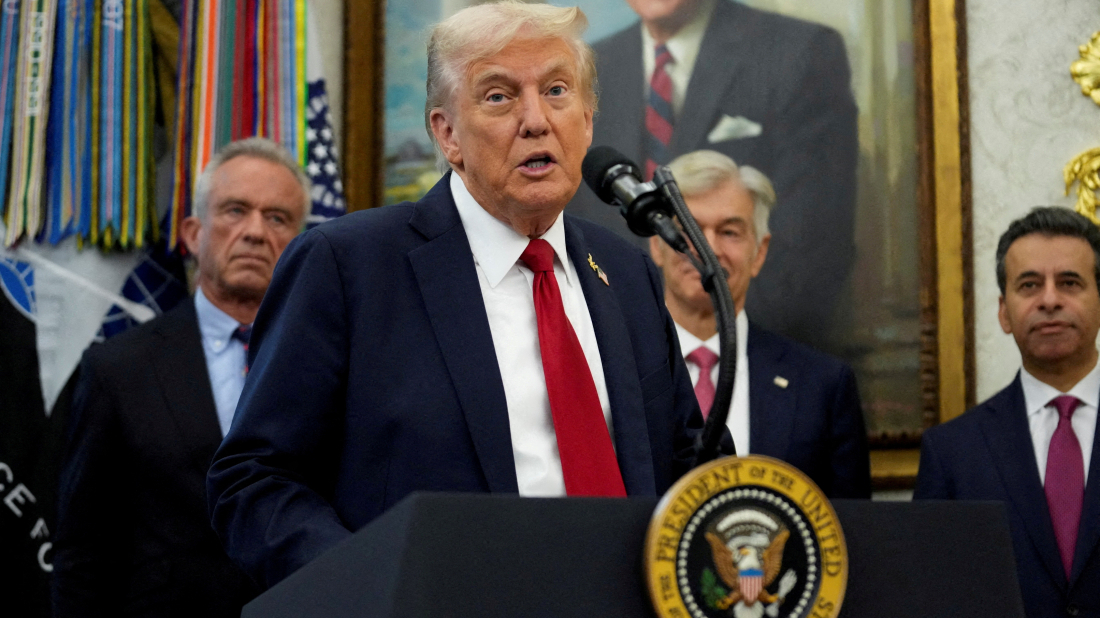World Economic Forum CEO resigns amid Epstein connections scrutiny
The president and chief executive of the World Economic Forum (WEF), Børge Brende, announced on Thursday (26 February) that he is stepping down, week...

The Trump administration has proposed on Thursday, banning Chinese airlines from flying over Russian airspace on flights to and from the United States, arguing that the current practice puts American carriers at a disadvantage.
U.S. airlines have long criticised the allowance for Chinese carriers to use Russian airspace on some flights, as it provides them with reduced flying time and lower fuel consumption, resulting in cost savings.
The U.S. Department of Transportation stated that this situation had become a significant competitive issue, leading to the proposed order to prevent Chinese overflights in order to "level the competitive playing field" between U.S. and Chinese airlines. The department described the current arrangement as "unfair" and said it had caused substantial adverse effects on U.S. carriers.
The Chinese embassy in Washington and Airlines for America, a major trade group representing American Airlines, Delta Air Lines, and United Airlines, which all operate flights to China, did not immediately respond to requests for comment.
Russia had already banned U.S. airlines and many other foreign carriers from flying over its airspace in retaliation for the U.S. prohibiting Russian flights from using U.S. airspace in March 2022, following Russia's invasion of Ukraine.
This decision could affect some U.S. flights operated by Chinese carriers such as Air China, China Eastern, Xiamen Airlines, and China Southern.
The proposal comes amid growing tensions between the U.S. and China over several economic issues. Boeing is currently in talks to sell as many as 500 jets to China, which would mark a major breakthrough in the world's second-largest aviation market, where orders have stalled due to ongoing trade tensions.
U.S. President Donald Trump and Chinese President Xi Jinping are expected to meet face-to-face in South Korea at the end of October.
The Transportation Department has given Chinese carriers two days to respond to the proposed order, and a final ruling could be implemented as early as November.
In May 2023, the U.S. approved additional flights by Chinese carriers after they agreed not to fly over Russia on new routes. Last year, the Transportation Department allowed Chinese airlines to increase weekly round-trip flights to the U.S. to 50 but did not add more flights due to pressure from U.S. unions and airlines. Before COVID-19 restrictions were imposed in early 2020, more than 150 weekly round-trip passenger flights were allowed by each side.
Some U.S. carriers have informed the Trump administration that direct East Coast flights to China are not financially viable due to the added expense of avoiding Russian airspace. In some cases, carriers have to leave seats empty and reduce cargo because of the extended flight lengths.
A F-16 fighter jet of the Turkish Air Force crashed near a highway in western Türkiye early on Wednesday (25 February), killing its pilot, officials and media reports confirmed.
Newcastle United secured a 3–2 victory over Qarabağ FK in the return leg of the UEFA Champions League play-offs at St James’ Park.
Chinese President Xi Jinping and German Chancellor Friedrich Merz agreed on Wednesday in Beijing to strengthen economic cooperation while addressing trade imbalances, market access concerns, and the war in Ukraine, during Merz’s first official visit to China since taking office.
Ukraine signalled its readiness for fast-track European Union membership in Kyiv on Tuesday (24 February), as European leaders pledged continued political and financial backing and insisted Russia would gain nothing at the negotiating table.
U.S. President Donald Trump declared a “golden age” for America in his first second-term State of the Union on Tuesday evening, delivering the longest-ever address at more than 90 minutes. Here are the main takeaways.
The president and chief executive of the World Economic Forum (WEF), Børge Brende, announced on Thursday (26 February) that he is stepping down, weeks after the organisation launched an independent investigation into his relationship with convicted sex offender Jeffrey Epstein.
Ukrainian and U.S. officials gathered in Geneva for talks on post-war reconstruction on Thursday (26 February) despite a deadlock in peace negotiations with Russia, which pounded infrastructure across Ukraine with drone and missile strikes overnight.
Chinese courts sentenced more than 41,000 people in 2025 in cases involving telecom and online fraud after suspects were repatriated from northern Myanmar, according to the Supreme People’s Court. Authorities also executed 16 individuals linked to major cross-border fraud networks.
The situation in Cuba was heating up and called for restraint following a deadly incident involving a Florida-registered speedboat off the coast of the Caribbean island, the Kremlin said on Thursday (26 February).
The United Nations children’s agency UNICEF said on Thursday (25 February) it was deeply concerned by reports that Myanmar military air strikes this week had killed at least five children and dozens of civilians, as fighting intensified across the country.
You can download the AnewZ application from Play Store and the App Store.

What is your opinion on this topic?
Leave the first comment